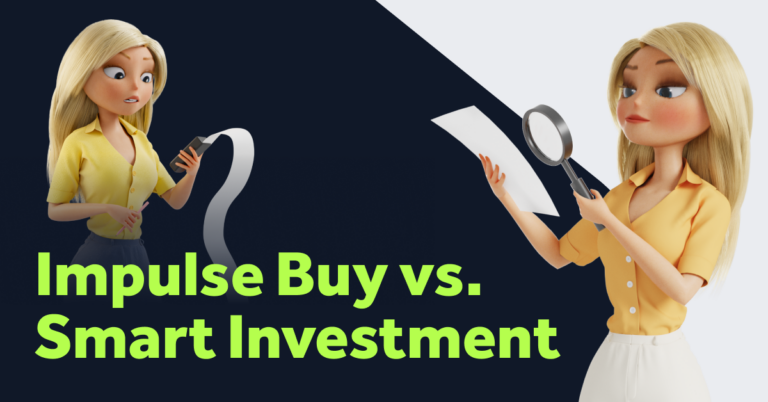Disclaimer: The views and opinions expressed in this article are those of the guest blogger and do not necessarily reflect the official policy or position of Bondora.
If you’ve been playing around with the idea to start investing and improving your financial skills, then you shouldn’t wait any longer. Now is the time. Here are 3 reasons proving why you should start investing now:

Reason Number 1 – You learn by doing
You can read many books, watch tons of educational videos and listen to hundreds of finance podcasts (and I do encourage you to do your homework), but in the end, you’re going to learn what works best by doing it yourself. Start with small amounts, and as you learn from personal experience what works for you, you can expand on that.
When you’re in the starting phase of investing, then it’s okay—and encouraged—to make mistakes. This will help you better understand various processes, finance products, opportunities, and risks. And when you learn these lessons with small amounts, you’ll forget the losses quickly and gain valuable investing experience.
Simultaneously, your motivation to learn more will increase when you earn returns (because who doesn’t love earning money?). But if you invest everything you have as a beginner and end up losing half of your investment, it could deter you from investing forever. This difficult situation can be avoided if you go through the paces of becoming an experienced investor slowly.
My preferred investment product: P2P loans
P2P loans are when you choose to grant loans to another private person or company. And in my opinion, this is a very lucrative investment. Risks can be mitigated in various areas, for example, through collateral deposits or historically high recovery rates. The higher the recovery rate, the less risk is associated with the investment. Buyback guarantees are also interesting to consider but not necessarily required because each guarantee is only as good as the person who agrees to it.
P2P lending has no direct correlation to the general stock market, and could thus add a diversification element to your own portfolio that offers even higher return rates.
Tip: If you invest in ETFs, you can expect a 4% – 6% return per year. With P2P loans, depending on risk levels, you could earn returns between 6% – 10%!
Reason Number 2 – The Compound interest effect
People love to think back on ‘the good old days,’ but were they really that good? At the very least, when it comes to investing, you used to get much better returns on numerous investments, for example, through a savings account or savings book. Nowadays, you’re grateful if you manage to get a positive interest rate on your savings account. Savings accounts generate practically no return, and inflation diminishes your income year after year.
If you leave your money in a bank account, you get practically nothing from the bank. With P2P loans, it’s a different story because you essentially become the bank. With P2P loans, you can earn much better returns as most P2P lending companies offer returns between 6% – 10%. That’s a whole lot more than what most banks will offer you!
Tip: You can get the most out of the compound interest effect when you reinvest your returns.
Of course, every investment opportunity comes with certain risks, which can scare off many people from investing entirely. But those who do dare to invest realize soon enough that with a few basic principles, you can figure out how to generate income with a reasonable level of risk. This can help you set yourself up to retire comfortably.
One of the most important principles is that of diversification. You want to include several asset classes in your portfolio, such as stocks, real estate, P2P loans, etc. This means you shouldn’t invest everything into only one asset class. Your assets should be spread across various asset classes, and ideally, they shouldn’t correlate with one another. This means that each asset class’s performance isn’t related to one another. For example, if your stock portfolio declines by 10%, your P2P returns will probably continue as normal. Diversification like this helps to mitigate risks and reduce the volatility and fluctuations of your portfolio.
One product that I enjoy using is Bondora’s very own Go & Grow. You can easily invest into a portfolio of more than 100,000 loan pieces and earn a return rate of up to 6.75% p.a.*
And, with Bondora, your money is protected by two reserve buffers. One buffer is to ensure fast liquidity for daily withdrawals; the other is to ensure a stable daily return rate on your investment.*
So far, the returns buffer has worked perfectly, and investors have always received up to 6.75% p.a. returns. * The reserve for withdrawals was only impacted once, when Bondora activated partial payouts in March 2020, during the pandemic. During this time, withdrawals took up to 2 weeks and were paid out in parts. All in all, it’s a unique feature in the P2P market and works well!
In a nutshell: If you leave your money in a savings account, you miss out on the opportunity to increase your wealth. On the other hand, if you choose to invest, especially with P2P loans, you have the chance to benefit from lucrative return rates and compound interest on your investment.

Reason number 3 – Inflation
Inflation ties directly with compound interest, because in principle, they are opposites of one another. Inflation refers to the gradual and continued price increase for goods and services. That means your purchasing power diminishes over time.
The higher the inflation rate, the less valuable your money becomes.
Europe currently has an inflation rate of over 4% when compared to last year. That means that your wealth has lost 4% of its buying power, and that the €100 you spent in 2020 on goods and services will now only be able to buy you €96’s worth of goods and services in 2021. Yes, €100 remains €100, but in this context, the cost of living increases, e.g., rent and utility costs. So, a product that cost €100 in 2020 will now cost €104 in 2021.
So, inflation is bad for your wealth, but what can you do about it? You can’t get rid of inflation, but you can combat it by actively investing and earning return rates higher than inflation. If you start investing early, you can benefit from the power of compound interest and set yourself up for a profitable retirement, as described in the previous section.
The profits you earn from your investments can compensate for the deficit due to inflation. Another problem with inflation is that no one can predict how long it will last or whether rates will go up or down.
In summary: The longer you leave your money in a savings account without actively investing it to earn higher return rates to combat inflation, the more purchasing power you’ll lose over time.

What can we take away from this?
It’s without a doubt beneficial to learn more about investing. In addition to stocks, stock funds, and ETFs, my personal recommendation is to include P2P loans in your portfolio because of the beneficial risk-return ratio. And due to the weak outlook on pension funds across Europe, it’s vital to start investing now and take your retirement future into your own hands.
If you start investing today, you don’t have to fear old-age poverty, you can shield your wealth against inflation, and you’ll have a reserve for future financial needs.
And you don’t need a lot of money to start investing. Start small, get a good feel for how it works, and build your wealth as you go along. So don’t delay, start today!
About the Author:
Aleks Bleck is 25 years old and runs the Northern Finance YouTube channel, the biggest German finance blog that focuses on P2P lending. You can also read more on his website, where he regularly writes about P2P lending and ETFs.
This text was originally written in German and translated to English. Even though we try our best to provide accurate translations, there might be slight differences due to the different languages and cultural nuances.


